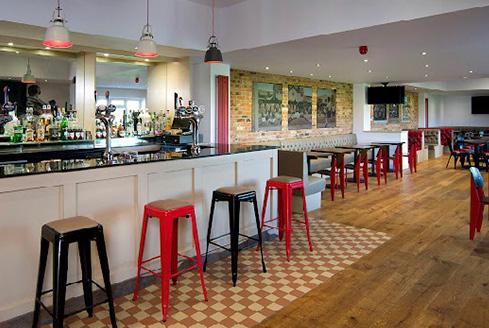
2 minute read
Stopping Prescription Waste
Iwork in Pharmacies across West Sussex� I and everyone else involved in the service are continuously surprised at the amount of medicines ordered, but never collected by patients� Additionally, a huge amount of prescription medicines are returned to us; some in unopened packets which have never been used� In 2010, the NHS estimated that unused medicines were costing £300 million, and that figure will have grown markedly between then and now�
Later research (2021) estimated that £500 million was wasted purely on medicines prescribed when other nondrug treatments may have been more appropriate�
Advertisement
At the time in 2010, that £300 million could have paid for…
✓ 11,800 more community nurses, or
✓ 80,100 more hip replacements, or
✓ 19,800 drug treatment courses for breast cancer, or
✓ 312,000 more cataract operations�
So, prescription waste is an expensive problem, that can be reduced, with the money saved freed up to pay for more care�
Bryan Turner MRPharmS

Patients should let their GP and/or Pharmacist know if they have stopped taking any of their medicines� There can be legitimate reasons for this; such as uncomfortable side effects� However, there are some patients who carry on ordering, as they think they may be upsetting the doctors’ applecart if they don’t follow their instructions� Your GP and Pharmacist can advise on alternatives and keep you well�
Make sure you check what medicines you have in stock at home before you re-order, and think carefully before you tick all the boxes on your re-order form� There is no need to order something “just in case” if you do not really need it� You can always place another order later� Medicines stored at home should be in a cool dry place, definitely not the kitchen or bathroom cupboard� Don’t mix new medicines with old, or you may take the wrong thing! Also, keep medicines safely out of the reach of children� Remember that your prescription medicines are supplied solely for you� Do not share them as you may inadvertently cause harm to someone else�
Unused medicines need to be disposed of responsibly to protect the health of others and to protect the environment� When you need to dispose of medicines, whether prescribed or purchased over the counter, you can return them to any Pharmacy� Unfortunately, many waste medicines are disposed of by flushing them down the toilet or by putting them in the bin with general waste� We know this because they can be scientifically detected in sewage, water courses and soil samples� All Pharmacies have regular collections of unused and waste medicines that are disposed of in a safe manner by authorised contractors� If you are returning medicines that have never been opened, they cannot be recycled or used by anyone else, due to safety concerns� The Pharmacy team will need to know if any “Controlled Drugs” are in the returns (usually strong opiate drugs such as Morphine), as they must be destroyed with an authorised witness present� Any medicine waste that includes needles (eg� some insulin medicines) cannot be returned to the Pharmacy� This type of waste is collected by the local Council’s clinical waste service� Patients can contact the Council by calling them or going online to request a collection�



Between the Blue and the Green Film Festival is the first, of what is hoped to be an annual weeklong film festival in Worthing, focusing on the important topics of sustainability and wellbeing. The organisers tell us more about it….
This first film festival of its kind for Worthing reflects its focus of protecting our environment in its title “The Blue and the Green”, and the important space we hold between the two� We explore the importance of future proofing our environment, ensuring the current and future wellbeing of humans as guardians� Our community-based film festival has thought provoking films and activities, aiming to drive change to your own selfcare and the environment around us�
The festival comprises of six events, to cover all ages� Please scan the QR codes for more details� Each of the ‘activity’ events – beach clean, kids workshop and mindfulness - will start with a short film related to the activity� This approach will help to cement the important messages around sustainability and wellbeing, as participants go through the sessions�










